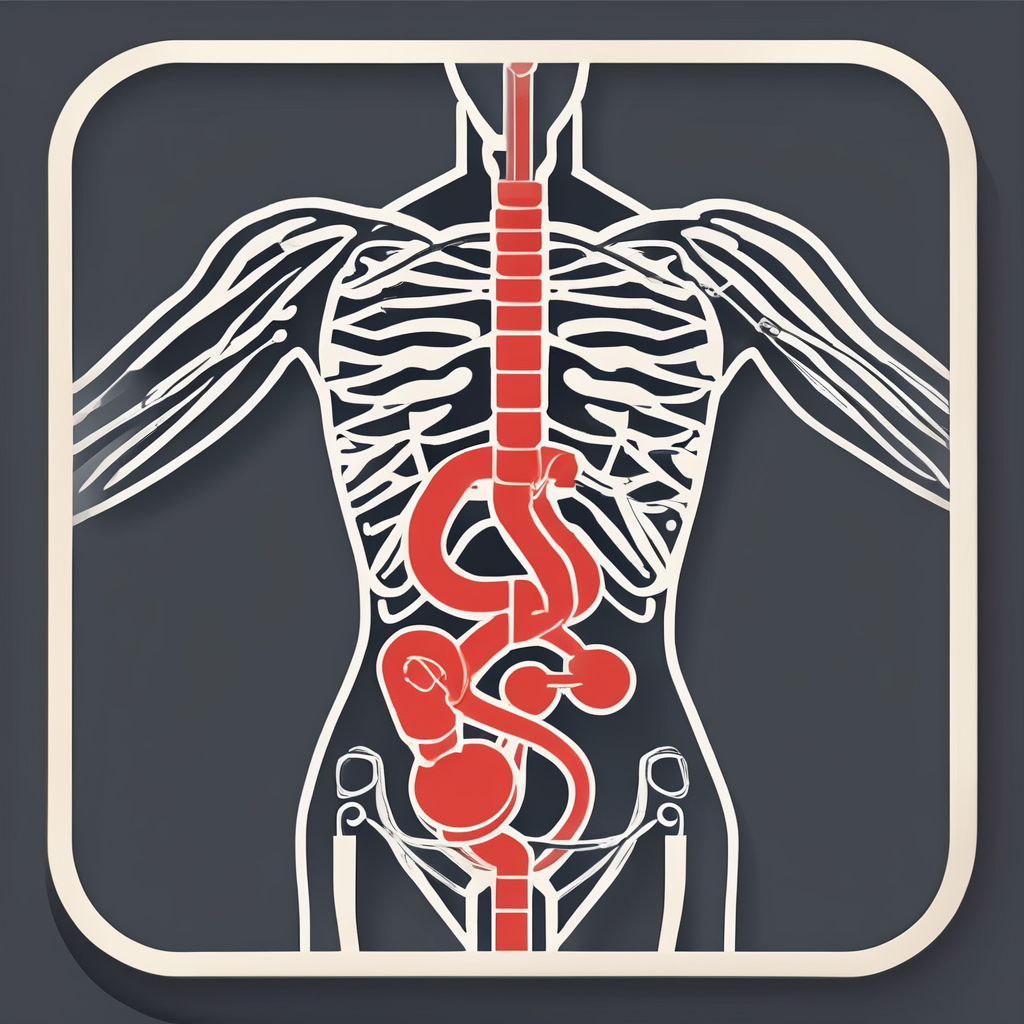Unveiling the Connection: The Impact of Oral Hygiene on Heart Health and Cardiovascular Wellness
When we think about maintaining good health, we often focus on diet, exercise, and regular medical check-ups. However, there is a crucial aspect of our health that is often overlooked but has significant implications for our overall well-being: oral health. The connection between oral hygiene and heart health is more than just a coincidence; it is a well-researched and documented relationship that can have profound effects on our cardiovascular wellness.
Understanding Gum Disease and Its Impact
Gum disease, also known as periodontal disease, is a bacterial infection that affects the gums and the supporting structures of the teeth. It begins with gingivitis, a mild form of gum disease characterized by redness, swelling, and bleeding of the gums, particularly when brushing or flossing. If left untreated, gingivitis can progress to periodontitis, a more severe form of gum disease that can lead to tooth loss and is associated with various systemic health issues, including heart disease[1][3][5].
In parallel : Discover the powerful benefits of the mediterranean diet in combating non-alcoholic fatty liver disease: an in-depth resource
The Progression of Gum Disease
- Gingivitis: The initial stage of gum disease, marked by inflammation of the gums.
- Periodontitis: A more advanced stage where the infection spreads to the supporting structures of the teeth, leading to potential tooth loss.
- Systemic Health Implications: Untreated gum disease can contribute to inflammation in the body, affecting heart health and increasing the risk of cardiovascular events.
The Link Between Gum Disease and Heart Health
The relationship between gum disease and heart health is rooted in the body’s inflammatory response. Here’s how it works:
Inflammation and Bacteria
- Bacterial Spread: The bacteria responsible for gum disease can enter the bloodstream and cause inflammation in various parts of the body, including the heart. This inflammation can lead to the thickening of the arteries (atherosclerosis), increasing the risk of heart attacks and strokes[1][3][5].
- Systemic Inflammation: Studies have shown that gum disease is associated with higher levels of certain proteins in the blood, such as C-Reactive Protein (CRP), which is a marker of inflammation and a risk factor for heart attacks and peripheral artery disease[3].
Impact on Existing Heart Conditions
- Exacerbating Heart Conditions: If you already suffer from conditions like high blood pressure or heart failure, untreated gum disease can make these conditions worse by adding additional stress on the body. Gum disease can also make blood pressure medications less effective, complicating the management of high blood pressure[1][2][3].
The Role of Regular Dental Care
Regular dental check-ups are crucial in maintaining both oral and heart health. Here’s why:
Have you seen this : Transforming substance abuse recovery: how peer mentoring lowers relapse rates and boosts success
Early Detection and Treatment
- Regular Check-Ups: Seeing your dentist at least twice a year for check-ups and cleanings can help identify gum disease in its early stages. Early detection allows for prompt treatment, preventing the progression of the disease and its potential impact on heart health[1][2][5].
Preventive Measures
- Good Oral Hygiene: Brushing and flossing daily are essential in removing plaque and bacteria that can contribute to gum disease. A healthy diet rich in vitamins and minerals, and avoiding smoking, are also key in maintaining good oral health[1][2][5].
Practical Steps to Maintain Good Oral Hygiene
Here are some practical steps you can take to protect your oral and heart health:
Daily Oral Care Routine
- Brushing and Flossing: Brush your teeth at least twice a day and floss once a day to remove plaque and bacteria.
- Mouthwash: Using a mouthwash can help kill additional bacteria that brushing and flossing might miss.
- Diet: Eat a balanced diet rich in calcium, vitamin D, and whole grains. Avoid foods high in salt and sugar.
Regular Dental Visits
- Check-Ups: Schedule regular dental check-ups to ensure early detection and treatment of any oral health issues.
- Cleanings: Regular cleanings help remove tartar and plaque that can lead to gum disease.
Avoiding Risk Factors
- Smoking: Smoking is a major risk factor for both gum disease and heart disease. Quitting smoking can significantly reduce your risk.
- Diabetes Management: For people with diabetes, managing the condition is crucial as uncontrolled diabetes can increase the risk of periodontitis[2].
The Impact of Poor Oral Health on Cardiovascular Health
Poor oral health can have several direct and indirect effects on cardiovascular health:
Increased Risk of Heart Disease
- Statistics: People with gum disease are 28% more likely to have a heart attack. Those with severe gum disease face a 49% higher risk of high blood pressure[2][3].
- Mechanisms: The bacteria from gum disease can lodge in vessel walls and plaque, narrowing arteries and raising blood pressure. This process can also lead to the formation of small-dense LDL, a particularly harmful subclass of low-density lipoprotein that increases the risk of heart disease and stroke[3].
Complications in Managing Blood Pressure
- Medication Effectiveness: Gum disease can make blood pressure medications less effective, complicating the management of high blood pressure. Studies have shown that people with healthy gums usually do better with blood pressure medications compared to those with gum disease[2].
Real-Life Implications and Examples
Understanding the connection between oral health and heart health can have real-life implications. Here are a few examples:
Case Study: The Finnish Study
- A Finnish study in 1989 noted that patients who had heart attacks had more severe oral conditions, including periodontal disease and tooth decay. This study was one of the first to highlight the link between oral health and cardiovascular events[3].
Expert Advice
- Dr. Richard Stein, a spokesman for the American Heart Association, advises patients to include good periodontal care in their preventive strategies for heart health, just as they would include exercise, healthy diets, and appropriate medications[3].
The connection between oral hygiene and heart health is clear and compelling. By prioritizing good oral hygiene, seeking regular dental care, and promptly addressing any gum issues, you can significantly reduce your risk of heart disease and other cardiovascular health issues.
Key Takeaways
- Good Oral Hygiene: Maintaining good oral hygiene through daily brushing, flossing, and regular dental visits is crucial for both oral and heart health.
- Early Detection: Early detection and treatment of gum disease can prevent its progression and reduce the risk of heart disease.
- Systemic Health: Oral health is not isolated; it is a part of overall health, and neglecting it can have far-reaching consequences.
By taking care of your teeth and gums, you are not only keeping your smile bright but also safeguarding your heart. Don’t wait until a problem arises—take care of your oral health today.
Table: Comparing the Risks Associated with Gum Disease and Heart Health
| Condition | Risk Factor | Impact on Heart Health |
|---|---|---|
| Gum Disease | Bacterial spread, inflammation | Increases risk of heart attacks, strokes, and high blood pressure |
| Periodontitis | Advanced gum disease | 25% greater chance of coronary artery disease, 1.72 fold greater chance of cardiovascular disease[3] |
| High Blood Pressure | Complicated by gum disease | Makes blood pressure medications less effective, increases systolic blood pressure by 2.3-3mmHg[2] |
| Diabetes | Uncontrolled diabetes | Increases risk of periodontitis, complicates overall health management[2] |
| Smoking | Major risk factor | Increases risk of both gum disease and heart disease[1][2][5] |
Detailed Bullet Point List: Steps to Prevent Gum Disease and Support Heart Health
-
Brush and Floss Daily:
-
Use a fluoride toothpaste and a soft-bristled toothbrush.
-
Floss at least once a day to remove plaque from between the teeth.
-
Consider using a mouthwash to kill additional bacteria.
-
Maintain a Healthy Diet:
-
Eat foods rich in calcium, vitamin D, and whole grains.
-
Avoid foods high in salt and sugar.
-
Avoid Smoking:
-
Quit smoking to reduce the risk of both gum disease and heart disease.
-
Regular Dental Visits:
-
Schedule check-ups and cleanings at least twice a year.
-
Address any dental issues promptly to prevent escalation.
-
Manage Chronic Conditions:
-
For people with diabetes, manage the condition to reduce the risk of periodontitis.
-
Work with your healthcare provider to ensure all chronic conditions are well-managed.
By following these steps and understanding the critical connection between oral hygiene and heart health, you can take proactive measures to protect your overall health and well-being.











